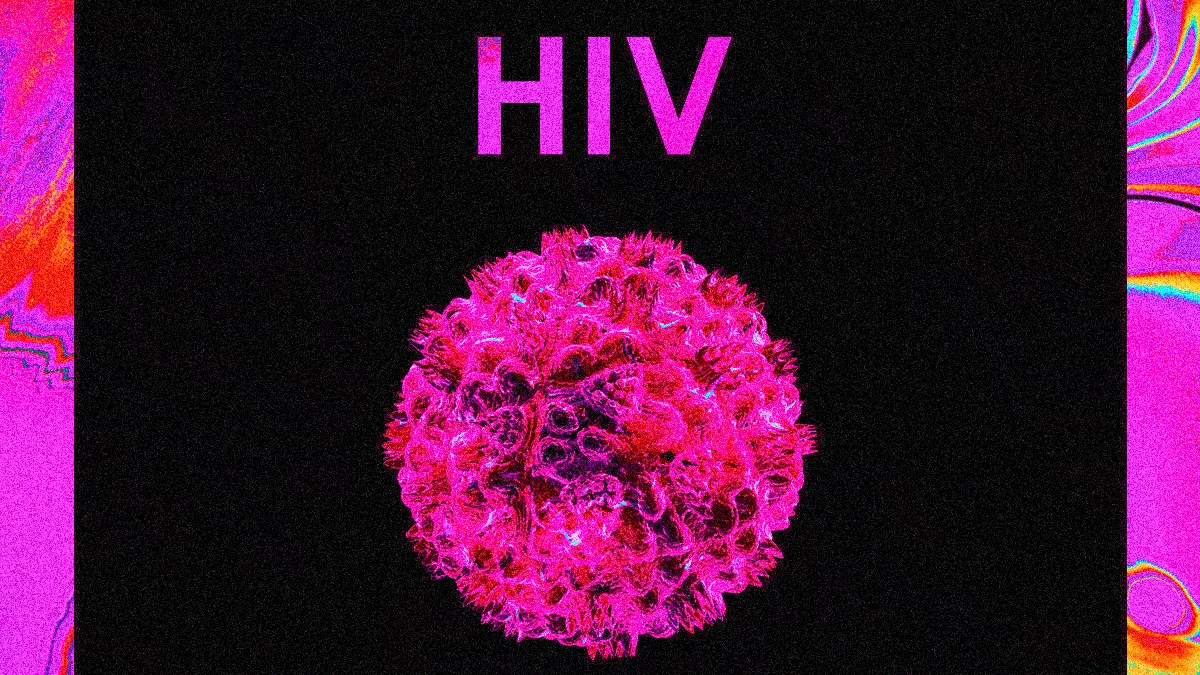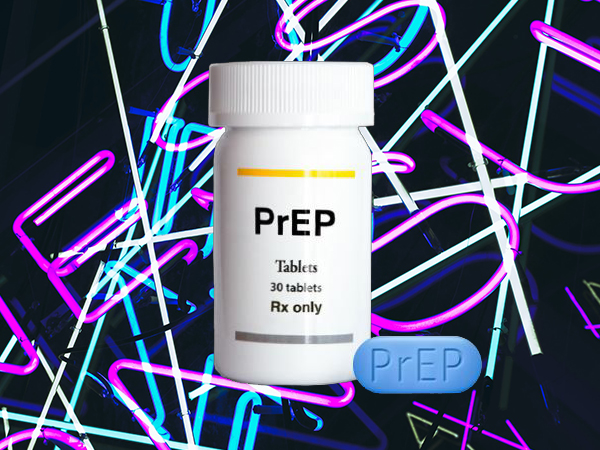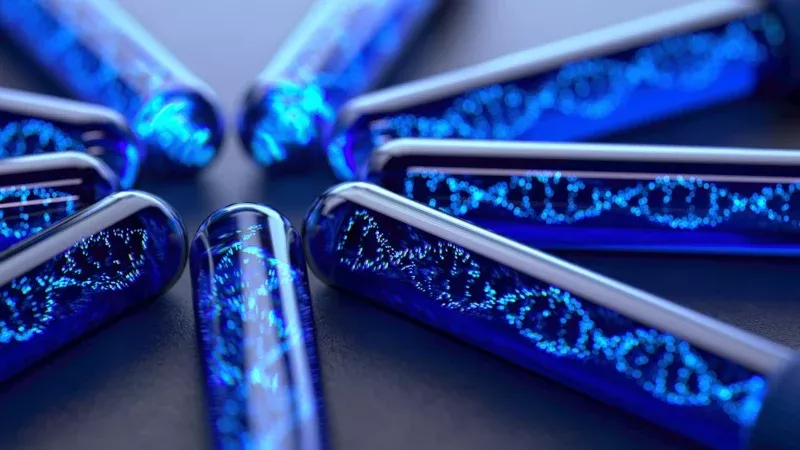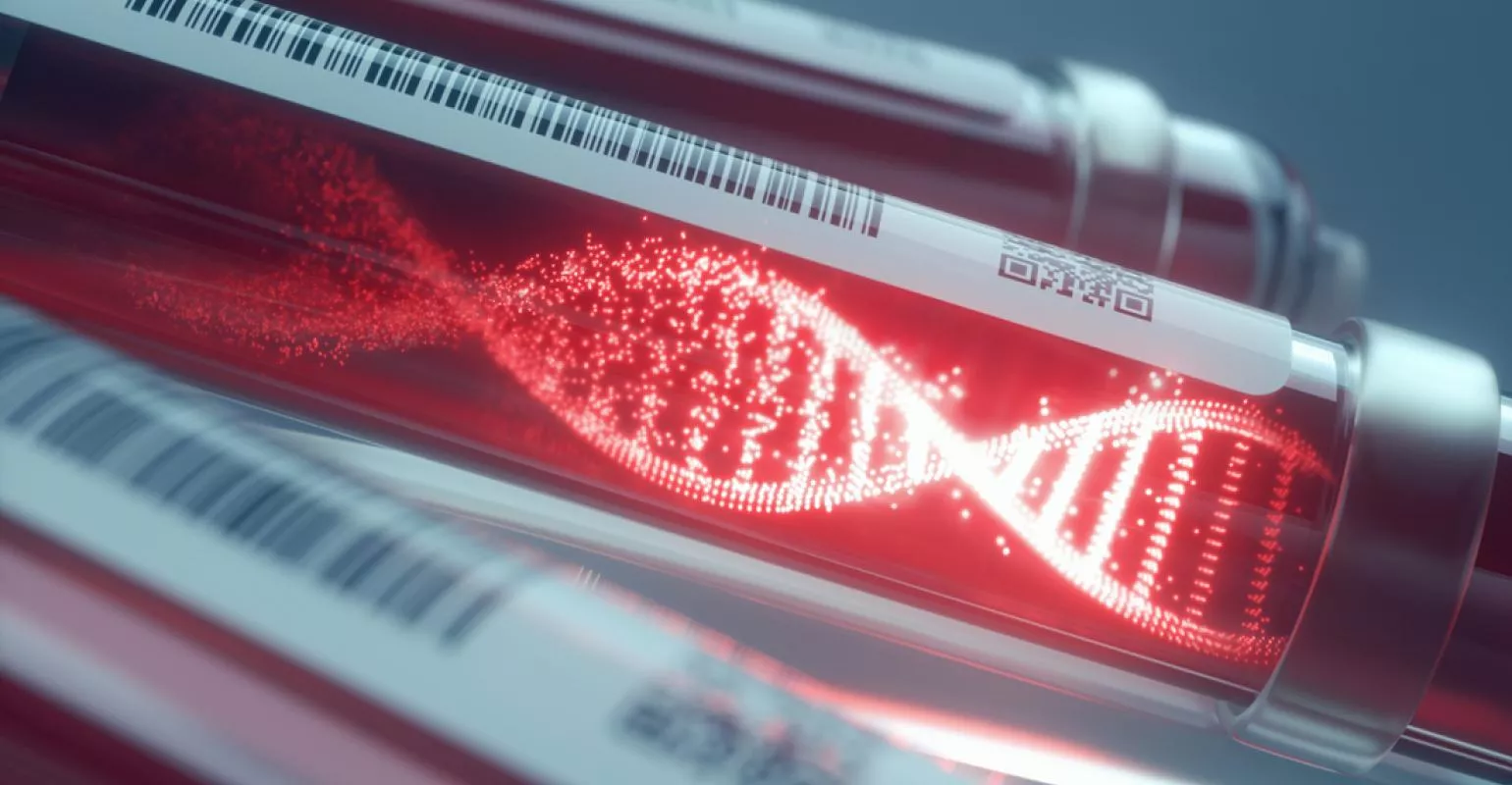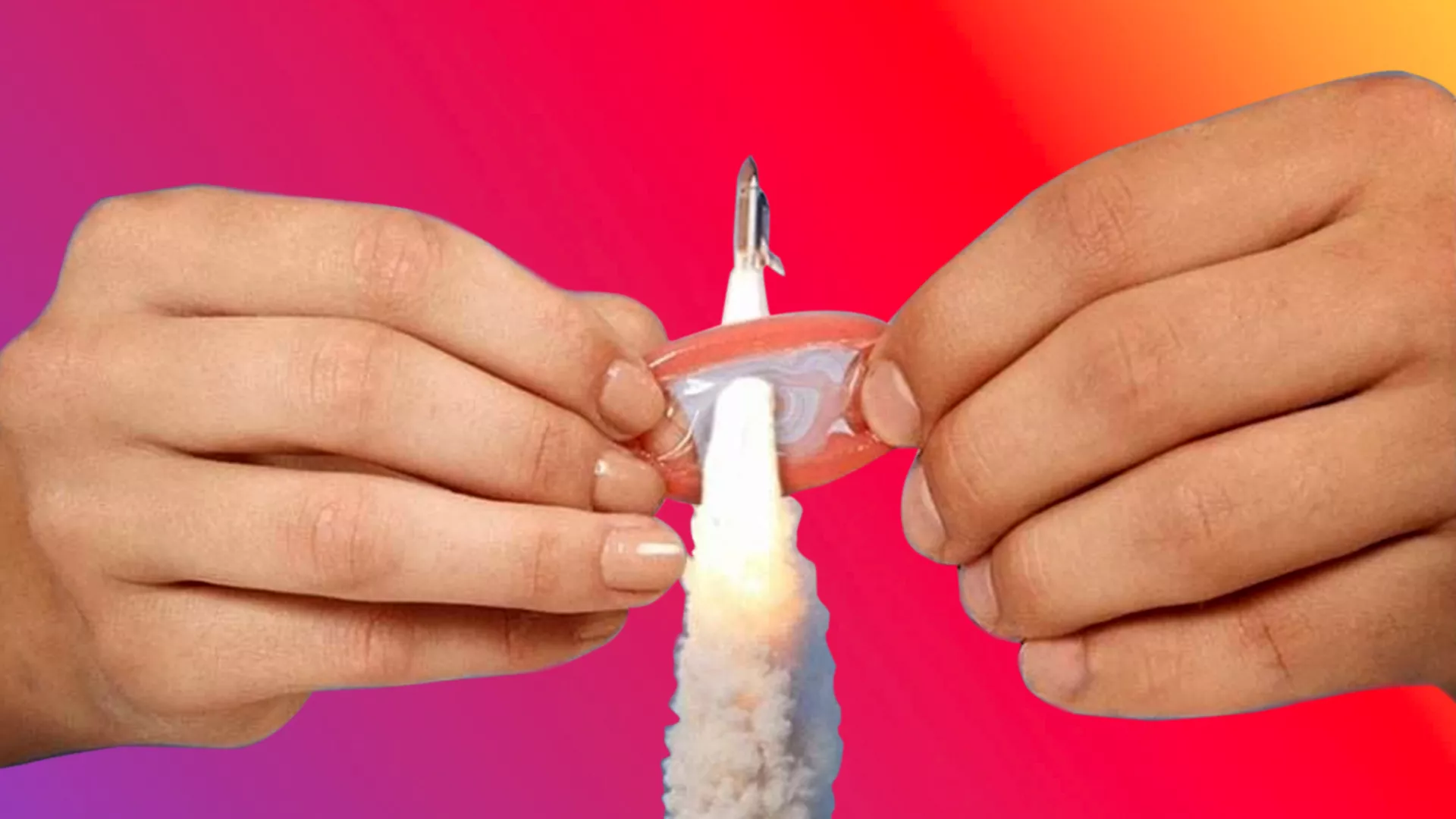PEP (Emergency PEP)
118544
PEP is emergency anti-HIV medication for HIV-negative individuals with recent exposure. Get emergency PEP for HIV prevention at PULSE, 7 days a week.
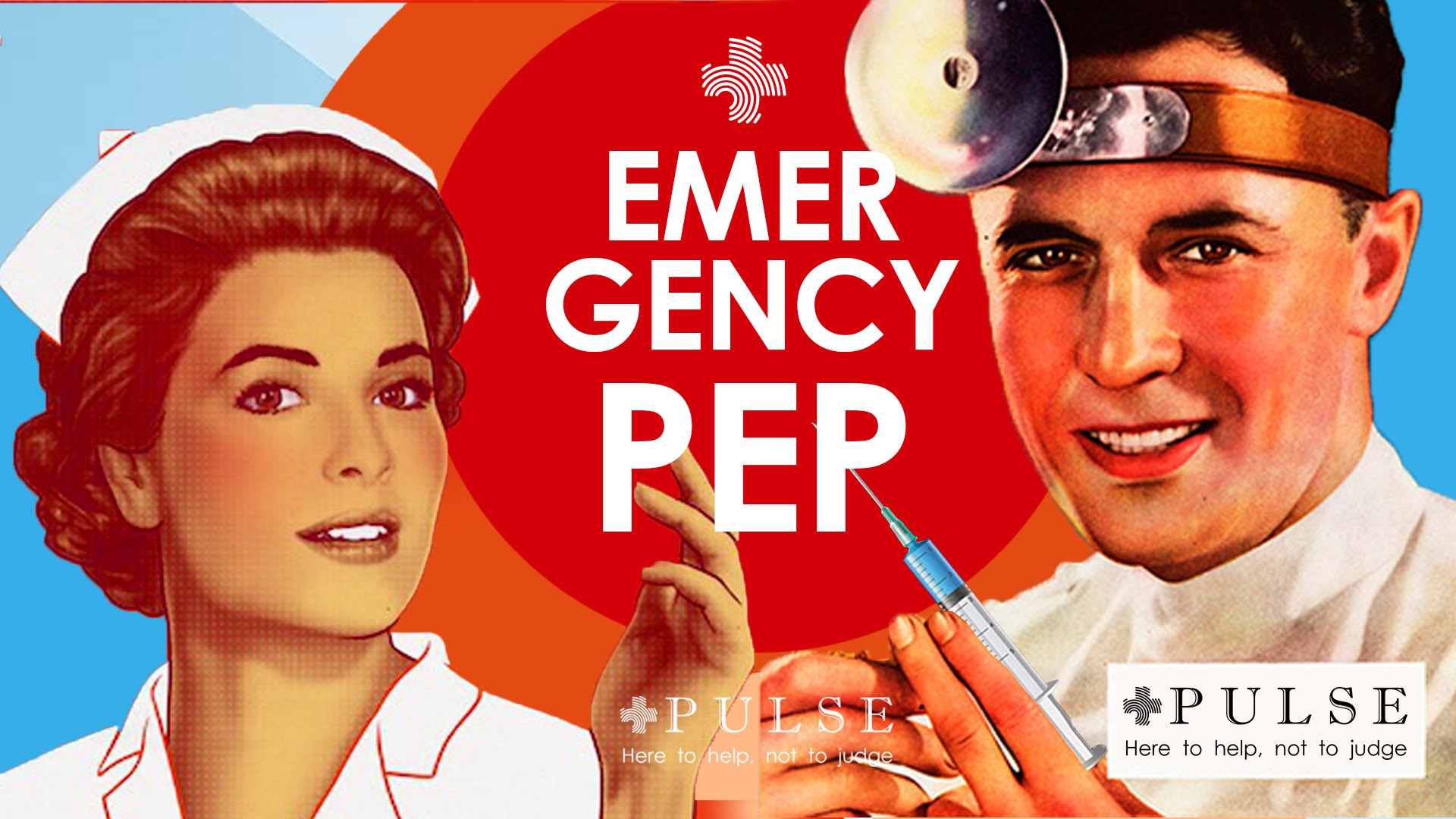
Dr.Deyn Natthakhet Yaemim (Founding Director) 6 June 2016, last updated 24 August 2022
PEP (Emergency PEP) - Emergency Solutions to Prevent HIV Transmission
PEP, short for Post-Exposure Prophylaxis, involves taking HIV medications for 28 days to stop the virus from multiplying and establishing an infection. It should be started within 2 hours and no later than 72 hours after potential exposure (e.g., unprotected sex, sharing needles, occupational exposure). PEP is highly effective when taken correctly and promptly.
Emergency HIV PEP at PULSE Clinic
| Services | Price |
Emergency PEP for HIV Prevention
| 4500 THB(Doctor Consultation Included) |
PEP Medications Options at PULSE Clinic
| PEP Options | Price (for 1 course - 28 days) |
Teldy | 2800 THB |
Kocitaf | 3700 THB |
Biktarvy | 4750 THB |
For more information about getting HIV treatment at PULSE Clinic, contact us at info.bkk@pulse-clinic.com or chat with us via one of the following platforms:
Key Points
|
Condom Break? Get PEP in Bangkok at PULSE Clinic! If you need emergency PEP after a condom failure, visit PULSE Clinic. We are open 7 days a week, including weekdays and weekends, for your convenience! If you have had a high-risk exposure to HIV in the last 72 hours, it's crucial to begin HIV PEP (Post-Exposure Prophylaxis) as soon as possible. For optimal effectiveness, start PEP within 24 hours after potential exposure.
The sooner you initiate PEP, the better your chances of preventing HIV infection. Decades of research and experience demonstrate that PEP can significantly reduce the risk of HIV transmission.
Factors that can increase the risk of HIV infection and you are a potential candidate for PEP due to:
- The partner is known to be HIV positive AND is not on treatment.
- Anal sex with penetration without condom
- Vaginal sex without condom
- Condom break
- Presence of blood
- Presence of cuts or ulcers
- You are not circumcised
- You have been exposed to potentially HIV infected body fluids
- Your exposure was less then 72 hours ago
- Partner of unknown HIV status who belong to higher risk HIV group (e.g. MSM or from africa or S.E.Asia)
- They penetrated you (Their penis, your arse) AND you don't know for sure whether they have HIV or not.
Missed the 72-Hour Window for HIV PEP? Seek Medical Advice!
If you cannot access HIV PEP (Post-Exposure Prophylaxis) within 72 hours, even if it's been 5-7 days since potential exposure, it's still essential to consult a healthcare professional about your options. You may be eligible for a 3-drug combination of antiretroviral medications to begin early treatment, which can help minimize damage to your immune system in case you have contracted HIV. Taking prompt action can be crucial for your health.
For more information about getting HIV treatment at PULSE Clinic, contact us at info.bkk@pulse-clinic.com or chat with us via one of the following platforms:
How Does PEP Work to Prevent HIV?
After potential exposure to HIV, it takes a few days for the virus to establish itself in the body. Once established, HIV can remain for life. However, starting PEP (Post-Exposure Prophylaxis) promptly can be crucial. Anti-HIV medications in PEP prevent the existing virus from replicating, allowing it to die out before it can multiply.
These PEP drugs support the body's immune system in halting the replication of HIV within infected cells. As a result, the initially infected cells can die off naturally within a short time, preventing further HIV production.
How Effective is PEP in HIV Prevention?
PEP is not a ‘cure’ for HIV. While PEP may prevent HIV from entering cells in the body and stop someone from becoming infected, it isn’t 100% effective. However, there have been very few reports of HIV infection after using PEP.
But if the HIV is already in the body, isn't it too late?
Not if you act quickly! After exposure, HIV can enter the bloodstream but takes time to establish itself permanently in the body. If a person exposed to HIV seeks PEP (Post-Exposure Prophylaxis) within 72 hours, they have a strong chance of preventing the virus from becoming established.
So, if I take PEP I won't become HIV positive?
Research indicates that taking PEP makes infection with HIV a lot less likely. But PEP doesn’t work every time. Some people who take it still end up with HIV afterwards. When people taking PEP have acquired HIV, it can fail because:
- Some people might not starting PEP quickly enough
- The person doesn’t or isn’t able to take PEP as prescribed (every day for a month)
- Missing doses of PEP or not finishing the 28-day course
- Some anti-HIV drugs don’t work against some strains of HIV (HIV drug resistant, although this is rare)*
- The initial viral load (the amount of HIV) in the body was too great for the drugs to be effective**
- Having unprotected sex or sharing needles, with further exposure to HIV, while taking PEP.
However, the sooner PEP treatment is begun after exposure to the virus, the more likely it is to work.
What to Expect When Receiving Emergency PEP at PULSE Clinic?
- Consultation
- Rapid screening for HIV, Hepatitis B virus with result in 15 minutes, accuracy 99.9%
- Kidney function tests
- PEP Medications
- Test or treatment for possible sexually transmitted infections
Which HIV PEP Medications Are Available at Our Clinic?
We use the latest gold standard PEP medicines with fewer side effects and better HIV prevention which will be taken for 28 days.
For adults: Tenofovir combined with either Tenofovir (TDF) and emtricitabine (FTC) as preferred backbone drugs and these are also the preferred drugs for treating HIV.
The recommended third drug, which is also recommended by WHO and CDC as a preferred drug for HIV treatment, will be chosen by your doctor.
There are some of our clients who do not understand when our doctors try to explain about HIV drug resistant. If you are unlucky and being exposed to such HIV, the classic PEP medications are not able to help you. That's why American CDC suggested on their PEP treatment guidelines that we should use a higher class of drugs that is less likely to be resisted by the HIV drug resistant type. These higher class medications are available at our clinics and they are costly. Much more expensive than the classic PEP medications generally used in low income countries. When our doctors prescribe this higher class PEP medications it is because they evaluate that your risk is very high and they are trying to keep the standard as high as American Center of Disease Control Guidelines for PEP treatment.
What Additional Steps Should You Take After Possible HIV Exposure?
Your doctor may recommend treatment as prevention for potential gonorrhea, chlamydia, or syphilis following unprotected sex or a sexual incident. We suggest the PCR multiplex test, which detects 28 infection that cause STD, available at PULSE Clinic.
You Might not Need PEP If...
- You are confident that your partner is HIV-negative.
- Your partner is HIV-positive and on successful treatment, maintaining an 'undetectable viral load.'
- Human bites.
- Contact with another person’s semen in your eye.
Trust PULSE CLINIC to take care of your health like other 45000 people from over 130 countries. We provide discreet professional service with high privacy. Here to help, not to judge.
What Questions Will the Doctor Ask During Your HIV Evaluation?
The doctor will assess your risk of HIV exposure before initiating treatment. Expect questions about the circumstances surrounding your potential exposure, including the type of sexual or injecting activity involved and whether your partner may be HIV-positive.
Specific inquiries may include:
- Do you know if the person has HIV? If so, do you know if they maintain an undetectable viral load?
- What type of sexual activity occurred (e.g., anal, vaginal, or oral sex)?
- Did you penetrate or were you penetrated during the encounter?
- Did either of you ejaculate inside the other?
- Are there any other concerns you would like to discuss?
These questions help determine the most appropriate course of action for your health.
It is important to be honest and accurate in providing this information – We are there to help you, not to judge you.
The information you provide will help us evaluate the seriousness of your situation. It’s important to note that the risk of contracting HIV through oral sex is extremely low. PEP (Post-Exposure Prophylaxis) is generally not recommended after potential exposure to HIV via oral sex. The only exception is if receptive oral sex was performed by a partner known to be HIV-positive, particularly if the receptive partner has cuts or lesions, such as ulcers, in their mouth.
At PULSE CLINIC (in every branch throughout Asia), we have seen this more than 4,000 times before; you’re not the first and you won’t be the last. The doctor won’t judge; they will be very helpful and make you feel at ease. If you think you’re at risk and need PEP, contact us.
How Can I Remember to Take My PEP?
Staying consistent with your PEP (Post-Exposure Prophylaxis) medication is crucial for effectiveness. Here are some tips to help you remember to take your PEP daily for the entire month:
- Set Daily Reminders: Use your mobile phone to set alarms or reminders for your medication schedule.
- Establish a Routine: Take your PEP at the same time every day, such as after breakfast or dinner.
- Use Visual Cues: Keep your PEP medications near items you use daily, like your toothbrush, to serve as a reminder.
- Link to Daily Habits: Take your medications when you brush your teeth and place them next to your toothbrush to ensure you notice them.
- Create Discreet Reminders: Attach a post-it note with the letter ‘P’ on your fridge or noticeboard as a subtle reminder to take your medication.
- Be Prepared for Nights Out: Carry enough PEP with you if you’re planning a big night out, just in case you don’t make it home.
- Involve a Friend: Ask a trusted friend to remind you to take your medications.
Taking Other Drugs While on PEP
It's essential to be cautious when taking other medications while on PEP. PEP can interact with prescription drugs, supplements, and vitamins, potentially altering their effectiveness. Additionally, using recreational drugs during PEP can be risky and may lead to severe side effects when combined with certain PEP medications. Always consult with your prescribing doctor or nurse about any other medications you are currently taking or considering.
I Have Completed My 28-Day Course of PEP—What’s Next?
Once you've finished your PEP course, schedule a follow-up appointment with your healthcare provider to get tested for HIV. Your doctor will evaluate your risk factors and may recommend starting PrEP (Pre-Exposure Prophylaxis) for ongoing protection. It’s also advisable to get tested again three months after completing PEP to confirm your status.
Weekend Emergency PEP in Bangkok, Phuket, Kuala Lumpur, Singapore, and Hong Kong
PULSE Clinics are open 7 days a week, ensuring you receive care even if you experience exposure or a sexual incident over the weekend. Book an appointment with us or walk into any of our branches for immediate assistance.
Estimated HIV transmission risk per exposure for specific activities and events
| Activity | Risk-per-exposure |
|---|---|
| Vaginal sex, female-to-male, studies in high-income countries | 0.04% (1:2380) |
| Vaginal sex, male-to-female, studies in high-income countries | 0.08% (1:1234) |
| Vaginal sex, female-to-male, studies in low-income countries | 0.38% (1:263) |
| Vaginal sex, male-to-female, studies in low-income countries | 0.30% (1:333) |
| Vaginal sex, source partner is asymptomatic | 0.07% (1:1428) |
| Vaginal sex, source partner has late-stage disease | 0.55% (1:180) |
| Receptive anal sex amongst gay men, partner unknown status | 0.27% (1:370) |
| Receptive anal sex amongst gay men, partner HIV positive | 0.82% (1:123) |
| Receptive anal sex with condom, gay men, partner unknown status | 0.18% (1:555) |
| Insertive anal sex, gay men, partner unknown status | 0.06% (1:1666) |
| Insertive anal sex with condom, gay men, partner unknown status | 0.04% (1:2500) |
| Receptive fellatio | Estimates range from 0.00% to 0.04% (1:2500) |
| Mother-to-child, mother takes at least two weeks antiretroviral therapy | 0.8% (1:125) |
| Mother-to-child, mother takes combination therapy, viral load below 50 | 0.1% (1:1000) |
| Injecting drug use | Estimates range from 0.63% (1:158) to 2.4% (1:41) |
| Needlestick injury, no other risk factors | 0.13% (1:769) |
| Blood transfusion with contaminated blood | 92.5% (9:10) |
Sources: vaginal sex;1 anal sex;2 fellatio;3 2 mother-to-child;4 other activities.5
References
1. Boily MC et al. Heterosexual risk of HIV-1 infection per sexual act: systematic review and meta-analysis of observational studies. Lancet Infect Dis 9(2): 118-129, 2009
2. Vittinghoff E et al. Per-contact risk of human immunodeficiency virus transmission between male sexual partners. American Journal of Epidemiology 150: 306-311, 1999
3. Del Romero J et al. Evaluating the risk of HIV transmission through unprotected orogenital sex. AIDS 16(9): 1296-1297, 2002
4. Townsend C et al. Low rates of mother-to-child transmission of HIV following effective pregnancy interventions in the United Kingdom and Ireland, 2000-2006. AIDS 22: 973-981, 2008
5. Baggaley RF et al. Risk of HIV-1 transmission for parenteral exposure and blood transfusion. AIDS 20: 805-812, 2006
We’re here to help
With whatever you’re experiencing, you are not alone. PULSE Social Enterprise is here for any concerns and questions that you might have about your health.
From general wellness to mental well-being to sexual health, we will be sure to give you fast, reliable, and safe diagnosis, treatment, and consultation.
Should I Also Test for Other STDs?
If you have been at risk of HIV exposure then it is very likely that you have been exposed to other STDs. Because of this, we highly recommend that you also screen for other STDs such as Syphilis, Gonorrhea, Chlamydia, Hepatitis, Herpes and Warts.
- Rapid Test for HIV, Syphilis, and Hepatitis B/C Virus
- PCR28 Comprehensive STD Test for 28 Infections
- HPV (Human Papilloma Virus) DNA Testing for Men and Women
- HPV Thin Prep for Cervical Cancer Screening in Women
You might also want to consider some preventive methods to help reduce the risk of STD transmission, especially in people who already have a history of having an infection. For example, HIV PrEP is a highly effective method in HIV prevention, DoxyPEP for bacterial STI, or getting HPV vaccines for 100% protection against 9 dangerous strains of HPV.
Doctors usually recommend taking PrEP after you have finished your PEP regimen.
Contact us at info.bkk@pulse-clinic.com or chat on your preferred platform:
Fast Test & Result for Fast Treatment
PCR Multiplex DNA Test for 28 Infections 




Our STD PCR Multiplex test offers advanced technology to detect up to 28 infections, including Gonorrhea, Chlamydia, Syphilis, Herpes Simplex, Trichomonas, and Candida strains, all in one test. It can identify infections in various anatomical areas, such as the throat, urethra, anorectal region, vagina, cervix, sperm, and skin lesions. For urethral infections, the Urine PCR is recommended, while the Throat Swab PCR is ideal after oral sex. Anal Swab PCR is advised for unprotected anal sex, and the Vaginal Swab PCR is recommended for vaginal sex, with staff guidance available for all tests.
| PCR for 28 Infections (STD Multiplex) | Online results | |||
| Same day** | Next day | 3 days | 7 days | |
| Throat | 14,000 THB | 11,600 THB | 10,480 THB | 9,200 THB |
| Urine | 14,000 THB | 11,600 THB | 10,480 THB | 9,200 THB |
| Anal Swab | 14,000 THB | 11,600 THB | 10,480 THB | 9,200 THB |
| Vaginal Swab | 14,000 THB | 11,600 THB | 10,480 THB | 9,200 THB |
| Cervical Swab | 14,000 THB | 11,600 THB | 10,480 THB | 9,200 THB |
| Sperm | 14,800 THB | 12,640 THB | 11,600 THB | 10,080 THB |
| Skin Lesion Swab | 14,000 THB | 11,600 THB | 10,480 THB | 9,200 THB |
| Pooling | 15,600 THB | 13,280 THB | 12,400 THB | 10,800 THB |
| PCR for 2 Infections (Gonorrhea/Chlamydia) | Same day | Next day | 3 days | 7 days |
| Throat | 5,690 THB | 4,990 THB | 3,990 THB | 3,300 THB |
| Urine | 5,690 THB | 4,990 THB | 3,990 THB | 3,300 THB |
| Vaginal and Cervical Swab | 5,690 THB | 4,990 THB | 3,990 THB | 3,300 THB |
| Rectal Swab | 5,690 THB | 4,990 THB | 3,990 THB | 3,300 THB |
| Sperm* | 6,200 THB | 5,150 THB | 4,100 THB | 3,690 THB |
| Skin lesion Swab | 5,690 THB | 4,990 THB | 3,990 THB | 3,300 THB |
PULSE Teleconsult: Connect with Doctors Anytime, Anywhere!
Sometimes you might not be able to go to a STD clinics when you have concerns about your health. PULSE now offers PULSE Telemedicine & Teleconsult, enabling both new and existing patients to connect with doctors from 16 branches across 6 countries during clinic hours for non-emergency consultations. After the consultation, medications are delivered directly to the patient's doorstep.
3 Easy Steps to Get a Teleconsult with PULSE!
- Connect with us Either on Whatsapp, Line App to Chat with us or call us to talk with our staff to request teleconsult
- Verification & Consultation Our team will guide you through the verification process before your online consultation. Our doctors provide virtual consultations via available platforms, just like a traditional visit—only from the comfort of your home! Access care anywhere, anytime.
- Get Your Treatment From Home! If your doctor determines that medication is necessary, they will provide you with a medical certificate and prescription. Your medication can be delivered to your address through our online delivery service, or in some cases, you may choose to use the prescription at a local pharmacy. For certain conditions, further lab tests may be required, and the doctor may recommend scheduling an appointment at one of our clinics near you!
Test of Cure After Treatment with Our Teleconsult Services: Ensuring Complete Recovery
After completing treatment through our teleconsult services, your doctor may recommend a PCR test as a follow-up test of cure. This is to ensure the effectiveness of the treatment and that the prescribed medication has successfully eliminated the infection. We prioritise your health by confirming that no infection remains in your system, helping to prevent persistent or recurrent infections, complications, or the development of drug resistance. Typically, this test is performed around three weeks after your final day of treatment to ensure optimal results.
Teleconsult is now available for booking through our staff at PULSE Clinic. Our team will help guide you through the process to ensure your session with one of our doctors goes as smoothly as possible for you. Contact us at info.bkk@pulse-clinic.com or chat on your preferred platform:
![]() +66 65 237 1936
+66 65 237 1936  @PULSEClinic
@PULSEClinic ![]() PulseClinic
PulseClinic
Trust PULSE CLINIC to take care of your health like other 45000 people from over 130 countries. We provide discreet professional service with high privacy. Here to help, not to judge.
Loading...
Clinic Locations
Loading...













